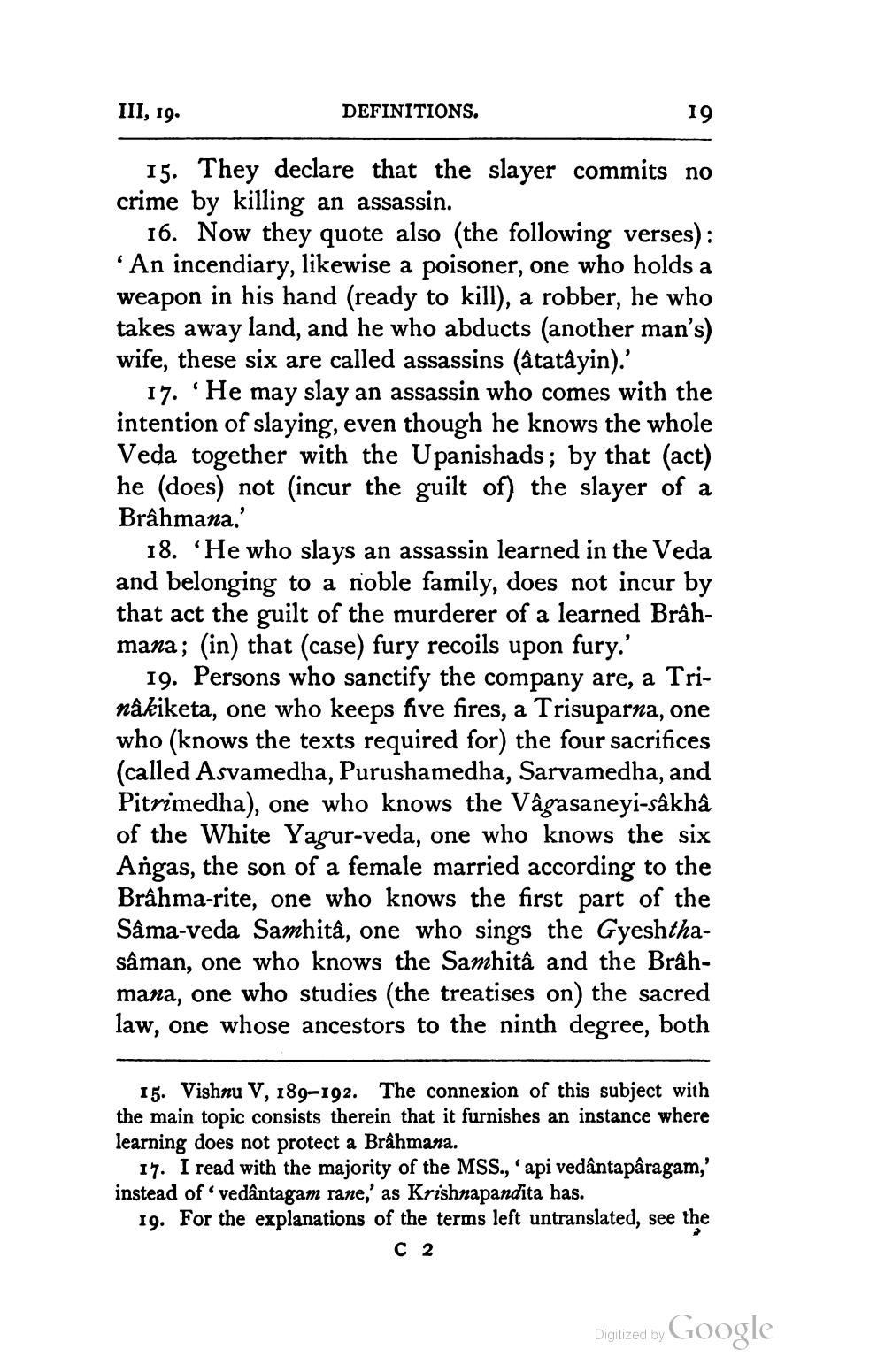________________
III, 19.
DEFINITIONS.
15. They declare that the slayer commits no crime by killing an assassin.
16. Now they quote also (the following verses): *An incendiary, likewise a poisoner, one who holds a weapon in his hand (ready to kill), a robber, he who takes away land, and he who abducts (another man's) wife, these six are called assassins (âtatâyin).'
17. He may slay an assassin who comes with the intention of slaying, even though he knows the whole Veda together with the Upanishads; by that (act) he (does) not incur the guilt of) the slayer of a Brâhmana.'
18. “He who slays an assassin learned in the Veda and belonging to a noble family, does not incur by that act the guilt of the murderer of a learned Brâhmana; (in) that (case) fury recoils upon fury.'
19. Persons who sanctify the company are, a Trinakiketa, one who keeps five fires, a Trisuparna, one who (knows the texts required for) the four sacrifices (called Asvamedha, Purushamedha, Sarvamedha, and Pitrimedha), one who knows the Vagasaneyi-sâkhâ of the White Yagur-veda, one who knows the six Angas, the son of a female married according to the Brâhma-rite, one who knows the first part of the Sâma-veda Samhitâ, one who sings the Gyeshthasaman, one who knows the Samhita and the Brâhmana, one who studies (the treatises on) the sacred law, one whose ancestors to the ninth degree, both
15. Vishnu V, 189-192. The connexion of this subject with the main topic consists therein that it furnishes an instance where learning does not protect a Brâhmana.
17. I read with the majority of the MSS., 'api vedântapâragam,' instead of vedantagam rane,' as Krishnapandita has. 19. For the explanations of the terms left untranslated, see t
C2
Digitized by Google




